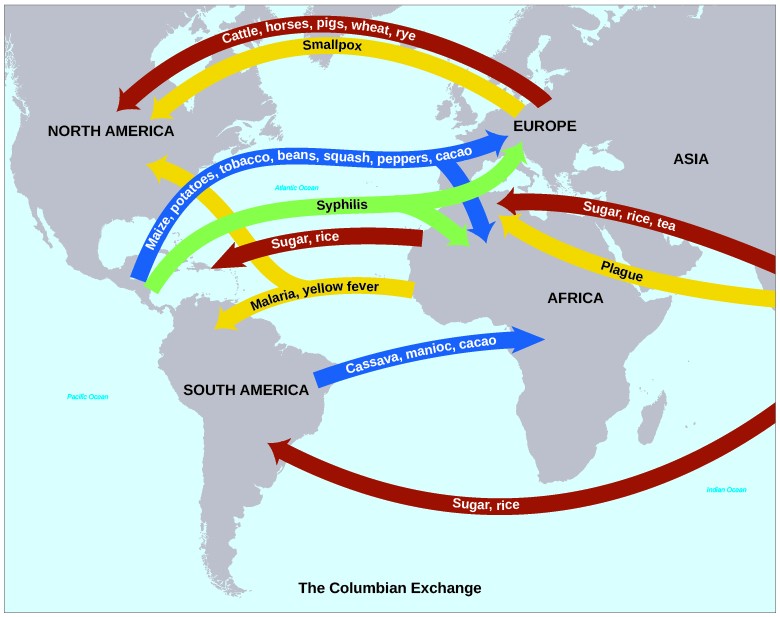Trade Deals Fuel Global Market Optimism sets the stage for this enthralling narrative, offering readers a glimpse into a story that is rich in detail and brimming with originality from the outset. In today’s interconnected world, trade agreements play a pivotal role in shaping economic landscapes, fostering collaboration among nations, and boosting investor confidence. As countries navigate the complexities of international trade, recent developments have sparked a wave of optimism across global markets.
With various nations entering into strategic partnerships, the impact of these trade deals extends beyond mere economic statistics; they cultivate an environment ripe for innovation, growth, and mutual benefit. This dynamic interplay creates a ripple effect, influencing everything from stock market trends to consumer sentiment, making the analysis of these agreements essential for understanding the future of the global economy.
In today’s fast-paced world, communication has become more important than ever before. Whether it’s in a personal or professional setting, the ability to convey thoughts clearly and effectively can significantly impact relationships and outcomes. This article delves into the nuances of communication, exploring its various forms, importance, barriers, and ways to enhance our communicative skills.### The Essence of CommunicationAt its core, communication is the process of exchanging information, ideas, and feelings between individuals or groups.
It encompasses a wide range of methods, including verbal, non-verbal, written, and visual communication. Each of these forms has its own set of characteristics and contexts in which it is most effective. Verbal Communication: This involves the use of spoken words to convey messages. It can be face-to-face conversations, phone calls, or video conferences. The effectiveness of verbal communication often relies on tone, pace, and clarity of speech.
Non-Verbal Communication: Often overlooked, non-verbal cues can communicate just as much—if not more—than words. Body language, facial expressions, and gestures play a crucial role in how messages are perceived. For instance, crossed arms might signal defensiveness, while maintaining eye contact can indicate confidence and honesty. Written Communication: This form includes emails, reports, letters, and social media posts. Written communication allows for careful crafting of messages and can be referred back to for clarity.
However, it can sometimes lead to misunderstandings due to the lack of immediate feedback and non-verbal cues. Visual Communication: This encompasses the use of images, charts, graphs, and other visual aids to convey information. It can enhance understanding and retention, especially in complex subjects. Infographics, for instance, can summarize large amounts of data and present it in an easily digestible format.### The Importance of Effective CommunicationEffective communication is crucial in various aspects of life:
1. Building Relationships Strong communication fosters trust and understanding in personal and professional relationships. It allows individuals to express their thoughts and feelings openly, leading to deeper connections.
2. Enhancing Collaboration In a workplace setting, effective communication is essential for teamwork. It ensures that team members are on the same page regarding goals, tasks, and feedback, ultimately leading to improved productivity.
3. Conflict Resolution Misunderstandings and disagreements are inevitable in any relationship. Effective communication skills enable individuals to address conflicts calmly and constructively, leading to resolution rather than escalation.
4. Influencing and Persuading Whether in sales, leadership, or everyday interactions, the ability to persuade others relies heavily on effective communication. Articulating ideas clearly and confidently can sway opinions and drive actions.
5. Boosting Confidence The more proficient one becomes in communicating, the more confident they tend to feel. This confidence can translate into better performance in social, academic, and professional settings.### Barriers to Effective CommunicationDespite its importance, several barriers can hinder effective communication:
1. Cultural Differences Variations in language, values, and norms can lead to misunderstandings. It’s crucial to be aware of cultural nuances when communicating with individuals from diverse backgrounds.
2. Emotional Barriers Personal emotions such as anger, fear, or anxiety can cloud judgment and affect how messages are received or conveyed. Being aware of one’s emotions and managing them can improve communication effectiveness.
3. Physical Barriers In our increasingly digital world, physical distances can create challenges in communication. Poor technology, distractions in the environment, or even differences in time zones can impede effective exchanges.
4. Perceptual Barriers Each individual has their own perspective shaped by experiences and beliefs. This can lead to misinterpretations of messages. It’s important to listen actively and seek clarification when needed.### Enhancing Communication SkillsImproving communication skills is an ongoing process that requires practice and dedication. Here are some effective strategies to enhance your communication abilities:

1. Practice Active Listening Listening is just as important as speaking. Active listening involves fully concentrating, understanding, responding, and remembering what is being said. It shows respect and encourages openness in conversations.
2. Be Clear and Concise When conveying messages, aim for clarity and brevity. Avoid jargon or overly complex language, especially when addressing individuals who may not share your expertise.
3. Adapt Your Style Tailor your communication style to your audience. This requires awareness of their preferences, backgrounds, and the context of the conversation. Adapting your approach can facilitate better understanding.
4. Provide Feedback Constructive feedback is a vital part of effective communication. It helps individuals understand their strengths and areas for improvement. Always deliver feedback in a respectful and supportive manner.
5. Use Non-Verbal Cues Wisely Being aware of your body language and facial expressions can significantly impact how your messages are received. Positive non-verbal cues, such as smiling and open gestures, can enhance your communication.
6. Engage in Public Speaking Participating in public speaking opportunities can boost your confidence and improve your verbal communication skills. It also helps in learning how to engage an audience effectively.
7. Seek Constructive Criticism Regularly ask for feedback on your communication skills from trusted friends, colleagues, or mentors. This can provide insights into areas for improvement that you may not have noticed.### ConclusionIn conclusion, effective communication is a fundamental skill that can significantly enhance personal and professional relationships. By understanding its various forms, recognizing barriers, and actively working to improve our communicative abilities, we can foster connections, resolve conflicts, and influence others positively.
Remember, communication is a two-way street; it requires both speaking and listening. By committing to continuous improvement in this area, we can not only express ourselves better but also understand and connect with others more deeply.
Quick FAQs: Trade Deals Fuel Global Market Optimism
What are trade deals?
Trade deals are agreements between countries that Artikel the terms of trade, including tariffs and import/export regulations, aiming to promote economic cooperation.
How do trade deals affect the global economy?
They can stimulate economic growth, enhance market access, and encourage investment by reducing barriers to trade.
What recent trade deals have influenced market optimism?
Recent agreements such as the USMCA and EU trade partnerships have created positive expectations among investors and businesses.
Why is investor confidence important?
Investor confidence drives market stability and encourages capital flow, which is vital for economic growth and innovation.
What role does communication play in trade deals?
Effective communication fosters transparency and trust between negotiating countries, which is essential for successful trade agreements.






